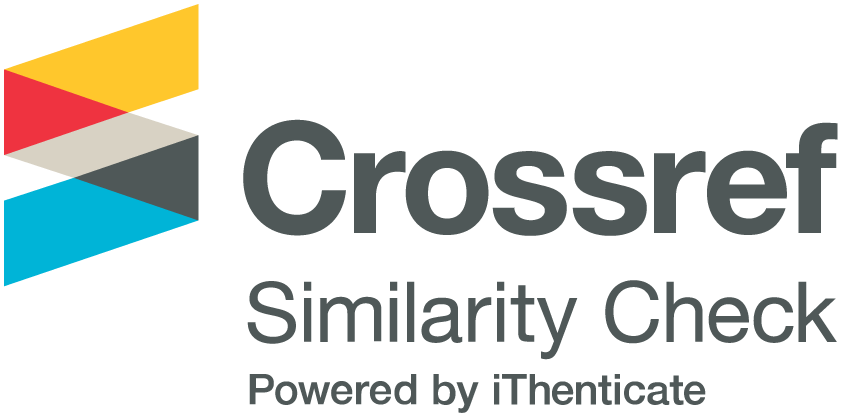How to Reconcile Family and Work Life Outside School Hours? Demands of Spanish Dual-Income Couples with Children
DOI:
https://doi.org/10.54790/rccs.21Keywords:
Reconciliation, time bank, out-of-school services, family policies, Mediterranean wellness modelAbstract
Reconciling work and family life is one of the challenges faced by today’s societies. The Spanish case is characterized by a labour market with long working hours and a lack of family policies, which forces many couples to seek help among their networks. This paper presents the results of a qualitative study. Fifteen couples, in which both spouses work full time and live with children 3-15 years of age, were asked about which actions should be taken by public authorities and companies. Work flexibility, telework, family cash benefits and a greater availability of out-of-school services, especially during school holidays, are some of the most frequently mentioned demands. Finally, it is analyzed the degree of acceptance among parents of promoting community care networks, such as time banks. These networks could be built using preexisting relationships both in educational centers and in neighborhoods and supported by local authorities.
Downloads
Metrics
References
Abril, P. et al. (2021). Conciliar también es masculino: mejores prácticas de empresas en España y Europa. Madrid: UNED.
Arpino, B. y Tavares, L. P. (2013). Fertility and Values in Italy and Spain: A Look at Regional Differences within the European Context. Population Review, 522(1), 62-86. https://doi.org/10.1353/prv.2013.0004
Ayuso, L. (2019). Nuevas imágenes del cambio familiar en España. Revista Española de Sociología, 28(2), 269-287. https://doi.org/10.22325/fes/res.2018.72
Blanco, I., Gomá, R. y Subirats, J. (2017). El nuevo municipalismo: derecho a la ciudad y comunes urbanos. Gestión y Análisis de Políticas Públicas, 20, 14-28. https://doi.org/10.24965/gapp.v0i20.10491
Centro de Estudios Andaluces (2021). Los cuidados y la vida laboral y familiar en Andalucía. https://www.centrodeestudiosandaluces.es/barometro/los-cuidados-y-la-conciliacion-de-la-vida-laboral-y-familiar-en-andalucia
Closingap (2019). Costes de oportunidad de la brecha de género en la conciliación.
Consejo Económico y Social (2016). La participación laboral de las mujeres en España. Madrid: CES.
Domínguez-Folgueras, M., González, M. J. y Lapuerta, I. (2022). The Motherhood Penalty in Spain: The Effect of Full- and Part-Time Parental Leave on Women’s Earnings. Social Politics, 29(1), 164-189. https://doi.org/10.1093/sp/jxab046
Esping-Andersen, G. (1990). The Three Worlds of Welfare Capitalism. Cambridge: Polity Press. https://doi.org/10.1177/095892879100100108
Escobedo, A. y Escapa, S. (2014). Participation of parents in the management of out-of-school care services as a source of solidarity at the local level. Working Paper, Cost Action SOS Cohesion, Barcelona, 3-6 març 2014. http://www.cost-is1102-cohesion.unirc.it/repository-of-case-studies
Fernández-Kranz, D. (2018). La brecha de género en España y el contrato de reducción de jornada por cuidado de menores. Cuadernos de Información Económica, 264, 45-60.
Ferrera, M. (1996). The Southern model of welfare in Social Europe. Journal of European Social Policy, 6(1), 17-37. https://doi.org/10.1177/095892879600600102
Fraguela-Vale, R.; Lorenzo-Castiñeiras, J. J.; Merelas-Iglesias, T. y Varela-Garrote, L. (2013). Tiempos escolares y conciliación: análisis de familias con hijos en educación secundaria obligatoria (12-16 años). Revista de Investigación Educativa, 31(2), 431-446. https://doi.org/10.6018/rie.31.2.167001
García-de-Diego, J. M. y García-Faroldi, L. (2022). Sexual Division in Parenting: A Normative Context That Hinders Co-Responsibility. Journal of Family Issues, 43(11): 2.888-2.909. https://doi.org/10.1177/0192513X211038073
García-Faroldi, L. (2015). Welfare states and social support: an international comparison. Social Indicators Research, 121, 697-722. http://doi.org/10.1007/s11205-014-0671-1
García-Faroldi, L. (2020). Mother’s autonomy or social constraints? Coherence and Inconsistency Between Attitudes and Employment Trajectories in Different Welfare Regimes. Social Politics, 27(1), 97-127. http://doi.org/10.1093/sp/jxy030
García Faroldi, L. (2023). Haciendo malabares. Conciliación y corresponsabilidad de las parejas trabajadoras españolas. Valencia: Tirant lo Blanch.
González, M. J. y Jurado, T. (Coords.) (2015). Padres y madres corresponsables. Una utopía real. Madrid: Catarata.
Haar, J. M.; Ruso, M.; Suñe, A. y Ollier-Malaterre, A. (2014). Outcomes of work-life balance on job satisfaction, life satisfaction and mental health: A study across seven cultures. Journal of Vocational Behavior, 85, 361-373. http://doi.org/10.1016/j.jvb.2014.08.010
Junta de Andalucía (2022). Plan Estratégico para la igualdad de mujeres y hombres en Andalucía (2022-2028). https://www.juntadeandalucia.es/organismos/transparencia/planificacion-evaluacion-estadistica/planes/detalle/240499.html
Jurado Guerrero, T. y Naldini, M. (1996). Is the South so different? Italian and Spanish Families in a Comparative Perspective. South European Society and Politics, 1(3), 42-66. https://doi.org/10.1080/13608749608539482
León, M. y Migliavacca, M. (2013). Italy and Spain: Still the Case of Familistic Welfare Models? Population Review, 52(1), 25-42. https://doi.org/10.1353/prv.2013.0001
Martínez, R. y De Andrés, E. (Dirs.) (2011). Impacto de la conciliación en el bienestar infantil. Fundación Másfamilia. https://www.observatoriodelainfancia.es/oia/esp/documentos_ficha.aspx?id=3160
Meil, G. (2011). Individualización y solidaridad familiar. Barcelona: Obra social La Caixa.
Miguel-Luken, V. de (2019). Cross-national comparison on family satisfaction: Superspecialization versus super-equality. Social Indicators Research, 145(1), 303-327. https://doi.org/10.1007/s11205-019-02089-w
Moreno, L. y Marí-Klose, P. (2016). Bienestar mediterráneo: trayectorias y retos de un régimen en transición. En: E. Del Pino y M. J. Rubio Lara (Dirs.). Los Estados de bienestar en la encrucijada. Políticas sociales en perspectiva comparada. Madrid: Tecnos.
Moreno Mínguez, A. (2010). Family and gender roles in Spain from a comparative perspective. European Societies, 12(1), 85-111. https://doi.org/10.1080/14616690902890321
Naldini, M. (2003). The Family in the Mediterranean Welfare States. Londres: Frank Cass. https://doi.org/10.4324/9780203009468
Naldini, M. y Jurado, T. (2013). Family and Welfare State Reorientation in Spain and Inertia in Italy from a European Perspective. Population Review, 52(19), 43-61. https://doi.org/10.1353/prv.2013.0003
Plantenga, J. y Remery, C. (2013). Childcare services for school age children. Luxemburgo: Publications Office of the European Union.
Romero-Balsas, P. (2022). Incremento en la duración del permiso exclusivo para padres y sus consecuencias en el cuidado infantil desde la perspectiva de las madres. Revista Española de Sociología, 31(1), a85. https://doi.org/10.22325/fes/res.2022.85
Romero-Balsas, P.; Rogero-García, J. y Meil, G. (2022). Permisos parentales no remunerados y escuelas infantiles: ¿son recursos de conciliación sustitutivos o complementarios? Revista Española de Investigaciones Sociológicas, 177, 111-126. https://doi.org/10.5477/cis/reis.177.111
Subirats, J. (2005). Democracia, participación y transformación social. Polis. Revista Latinoamericana, 12.
Tobío Soler, C. (2005). Madres que trabajan. Dilemas y estrategias. Valencia: Ediciones Cátedra (2ª ed.).
Tobío, C. y Fernández Cordón, J. A. (2013). Family networks in Andalusia, Spain. International Review of Sociology, 23(1), 68-84. https://doi.org/10.1080/03906701.2013.771051
Valarino, I.; Meil, G. y Rogero-García, J. (2018). Family or state responsibility? Elderly and childcare policy preferences in Spain. International Journal of Sociology and Social Policy, 38(11/12): 1101-115. https://doi.org/10.1108/IJSSP-06-2018-0086
Varela, L. y Gradaíllle, R. (2021). El Espejismo de la Conciliación: Dificultades y Estrategias para la Organización de los Tiempos Cotidianos de las Familias con Hijos/as en Educación Primaria en Galicia. Archivos analíticos de políticas educativas, 29(89). https://doi.org/10.14507/epaa.29.5105
Downloads
Published
How to Cite
Issue
Section
License
Copyright (c) 2023 Livia García Faroldi

This work is licensed under a Creative Commons Attribution-NonCommercial-ShareAlike 4.0 International License.
Funding data
-
Fundación Pública Andaluza Centro de Estudios Andaluces×
Grant numbers PRY121/19










